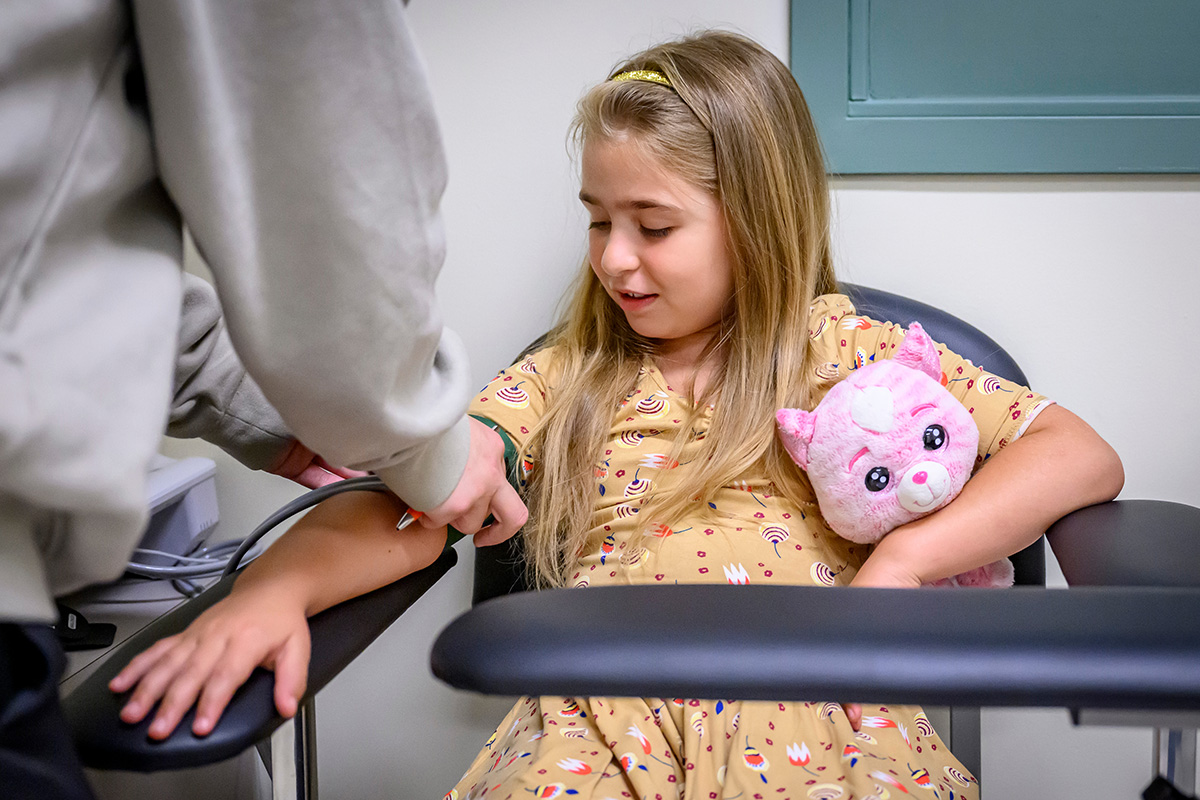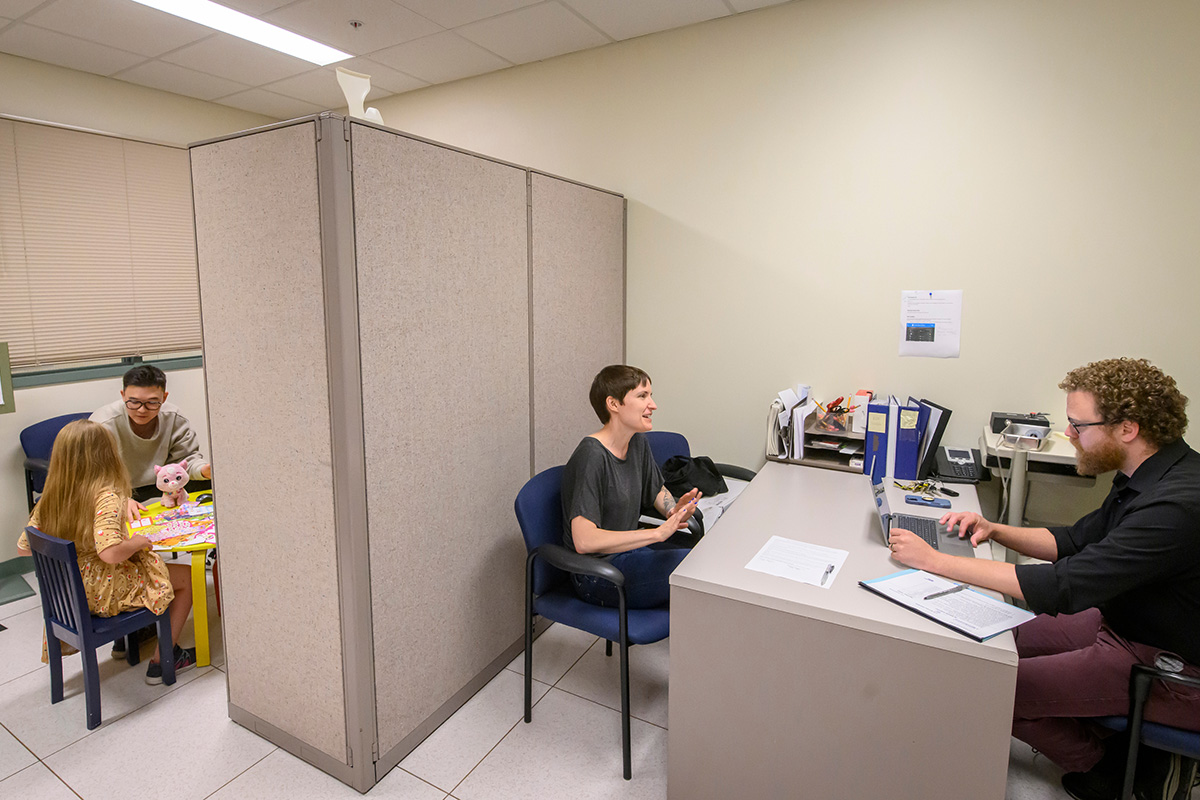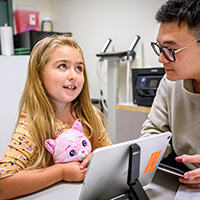
The IKIDS research team at the Beckman Institute for Advanced Science and Technology at the U. of I. studies maternal and child health outcomes and their relationship to environmental and nutritional exposures. Participant Margo Schiro, age 7, gets her blood pressure taken.
Photo by Fred Zwicky
CHAMPAIGN, Ill. - Seven years after an initial $17.9 million award from the National Institutes of Health, the Illinois Kids Development Study at the University of Illinois Urbana-Champaign will receive approximately $13.7 million - awarded in two phases - to continue its work for another seven years. The money coming to Illinois is part of a national collaborative effort to explore how environmental exposures influence child development, cognition, growth and health.

Sarah Schiro, center, and her daughter, Margo, 7, take part in a IKIDS screening session with postdoctoral researcher Nick Cragoe and graduate student researcher Cai Zhang.
Photo by Fred Zwicky
IKIDS is part of Environmental Influences on Child Health Outcomes, a national initiative to study five areas of child health. IKIDS focuses on two of these: the pre-, peri- and postnatal period, and neurodevelopment. IKIDS also contributes to studies of the other focal areas: obesity, respiratory health and well-being.
So far, IKIDS has investigated chemical exposures in more than 500 pregnancies, following many of the children from the prenatal period into their eighth year of life. The work has led to discoveries relating to the vast number of chemical exposures that occur during pregnancy and the relationship between these exposures and cognitive and developmental outcomes. Here are some of the findings:
- A 2022 study that involved a collaboration among nine ECHO cohorts found evidence of widespread exposure to more than 50 chemicals during pregnancy. Five new analytes not currently included in U.S. biomonitoring were detected in more than 90% of the women. Most of these were phthalates, endocrine-disrupting chemicals used in a variety of plastics, cosmetics and other commercial products.
- A 2022 study found evidence of age- and sex-specific associations between prenatal phthalate exposure and infant neurobehavior.
- A 2021 study linked prenatal phthalate exposure to altered cognitive processing in infants.
- A 2020 study and a 2021 study found that maternal stress during pregnancy was associated with altered cognitive development in infancy.
The collaborations between institutional partners across the U.S. allow the ECHO program to build a vast database of environmental exposures and health outcomes, said U. of I. comparative biosciences professor emerita and IKIDS principal investigator Susan Schantz. So far, ECHO has collected data on more than 36,000 children nationwide.

The Illinois Kids Development Study will continue with new funding from the National Institutes of Health, says IKIDS principal investigator Susan Schantz, a U. of I. professor emerita of comparative biosciences.
Photo by Fred Zwicky
The previous work at the U. of I. was conducted in relatively high income, highly educated families, Schantz said. Going forward, the IKIDS team is focused on recruiting another 600 mothers and fathers during pregnancy, with an emphasis on bringing a broader representation of families into the cohort. This will involve collaborations with Promise Healthcare and the Champaign-Urbana Public Health District, Schantz said.

The IKIDS program tracks child health from the womb to adolescence with a focus on environmental exposures and brain development.
Photo by Fred Zwicky
"We're recruiting participants who are eligible for the WIC program and we're recruiting Spanish-speaking and low-income participants," she said. "These are groups that are typically underrepresented in human health research."
The team is also focused on sharing their findings with participants, a goal of the ECHO initiative. To achieve this goal, the IKIDS program will use a smartphone tool developed by the Silent Spring Institute to share personalized chemical-exposure results with participants and help them understand the findings and how to reduce their exposures.
Schantz is a full-time faculty member at the Beckman Institute for Advanced Science and Technology at the U. of I.






